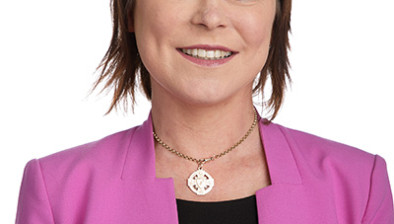Private members’ bill to require 40 per cent women’s representation on company boards

Emer Higgins
Company boards will have to comprise at least 40 per cent women under a private members’ bill submitted today by a Fine Gael TD.
Emer Higgins, TD for Dublin Mid-West, submitted the Irish Corporate Governance (Gender Balance) Bill 2021 to the Dáil after developing it in conjunction with the National Women’s Council of Ireland (NWCI).
The bill will set a target of at least 33 per cent women’s representation on Irish boards within the first year of enactment, rising to 40 per cent after three years.
Where a company fails to meet the target “without a credible explanation”, they may become liable for an application to the High Court for an order directing that they take action.
Ms Higgins said: “This bill will bring Ireland in line with some of our EU neighbours that have already adopted legislative quotas on company boards.
“France has a 40 per cent gender quota for women on company boards, Italy requires at least one third of either gender to comprise their boards. Germany has a 30 per cent quota for supervisory boards and plans to introduce a 30 per cent mandatory quota for 70 of its largest firms.”
A recent report from NWCI said women accounted for just 22.4 per cent of board members of Irish listed companies, while 19 per cent of Irish listed companies had no women directors at all.
“Experience from other countries has demonstrated that legislation, rather than approaches such as target-setting, recommendations or mentoring, is the most effective way to improve the representation of women on boards,” Ms Higgins said.
“Quotas are not a magic bullet that will stamp out gender inequality overnight, but they will accelerate the pace of change and build upon the efforts of agencies like Balance for Better Business and the 30% Club that have been doing fantastic work in driving companies and state boards to achieve gender parity.”
Emma DeSouza, women in leadership co-ordinator at the NWCI, said: “After adoption in countries including France, Germany, Italy and the Netherlands, quotas have influenced the number of women on boards, the performance and outcomes of decision-making bodies, and broader public attitudes.
“Quotas redistribute power at the top of the labour market, which results in significant trickle-down benefits, both in terms of improving financial performance but also for women at all levels in a company.”








